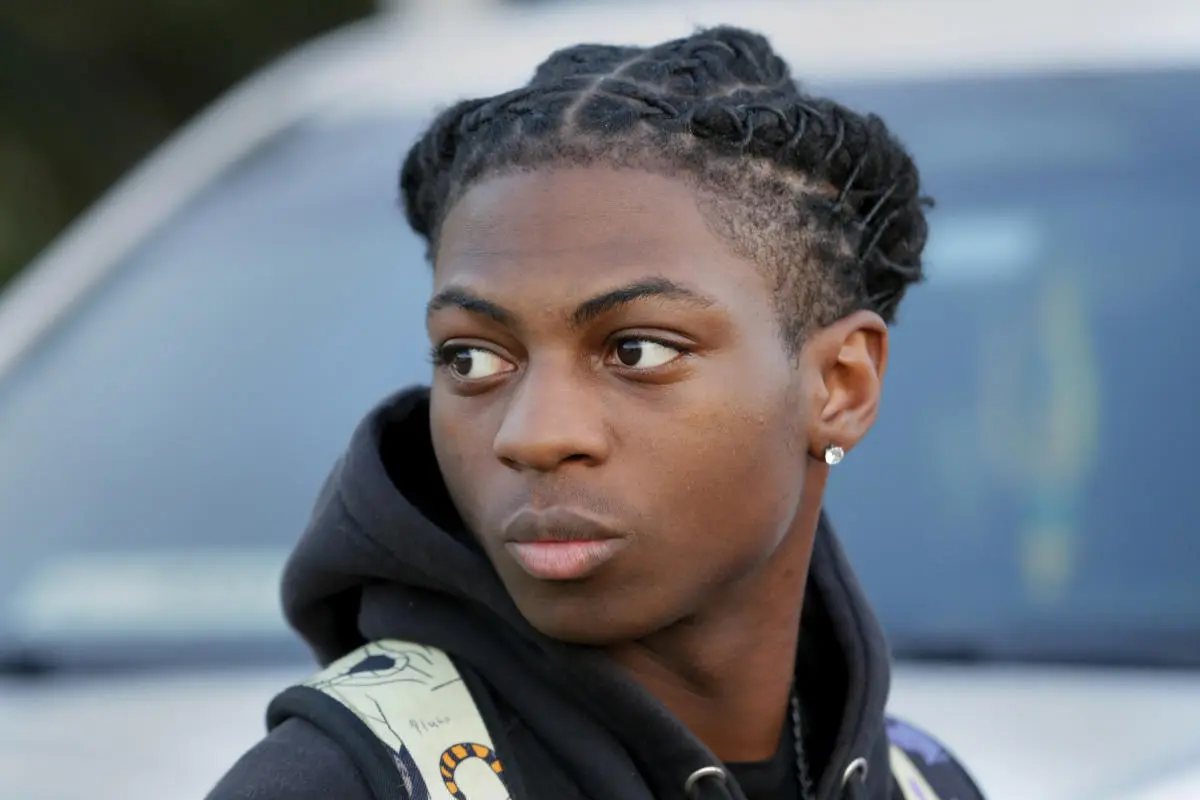After serving more than a month of in-school suspension over his dreadlocks, a Black student in Texas was told he will be removed from his high school and sent to a disciplinary alternative education program on Thursday.
Darryl George, 18, is a junior at Barbers Hill High School in Mont Belvieu and has been suspended since Aug. 31. He will be sent to EPIC, an alternative school program, from Oct. 12 through Nov. 29 for “failure to comply” with multiple campus and classroom regulations, the principal said in a Wednesday letter provided to The Associated Press by the family.
Principal Lance Murphy wrote that George has repeatedly violated the district’s “previously communicated standards of student conduct." The letter also says that George will be allowed to return to regular classroom instruction on Nov. 30 but will not be allowed to return to his high school’s campus until then unless he’s there to discuss his conduct with school administrators.
Barbers Hill Independent School District prohibits male students from having hair extending below the eyebrows, ear lobes or top of a T-shirt collar, according to the student handbook. Additionally, hair on all students must be clean, well-groomed, geometrical and not an unnatural color or variation. The school does not require uniforms.
George’s mother, Darresha George, and the family’s attorney deny the teenager’s hairstyle violates the dress code. The family last month filed a formal complaint with the Texas Education Agency and a federal civil rights lawsuit against the state’s governor and attorney general, alleging they failed to enforce a new law outlawing discrimination based on hairstyles.
The family alleges George’s suspension and subsequent discipline violate the state’s CROWN Act, which took effect Sept. 1. The law, an acronym for “Create a Respectful and Open World for Natural Hair,” is intended to prohibit race-based hair discrimination and bars employers and schools from penalizing people because of hair texture or protective hairstyles including Afros, braids, dreadlocks, twists or Bantu knots.
A federal version passed in the U.S. House last year, but was not successful in the Senate.
The school district also filed a lawsuit in state district court asking a judge to clarify whether its dress code restrictions limiting student hair length for boys violates the CROWN Act. The lawsuit was filed in Chambers County, east of Houston.
George’s school previously clashed with two other Black male students over the dress code.
Barbers Hill officials told cousins De’Andre Arnold and Kaden Bradford they had to cut their dreadlocks in 2020. Their families sued the district in May 2020, and a federal judge later ruled the district’s hair policy was discriminatory. Their pending case helped spur Texas lawmakers to approve the state’s CROWN Act. Both students withdrew from the school, with Bradford returning after the judge’s ruling.
link: https://www.aol.com/news/black-student-suspended-over-hairstyle-220842177.html


